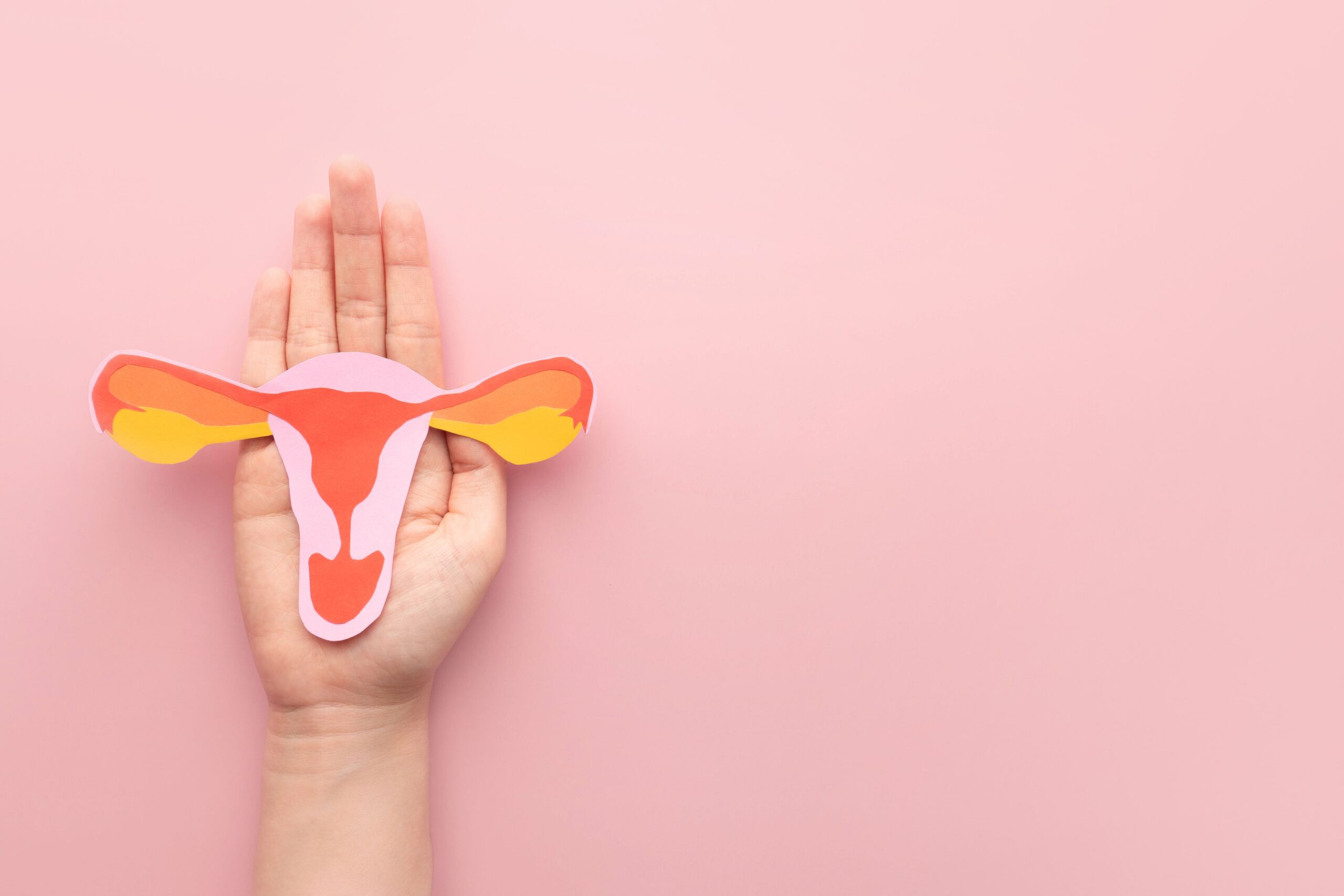What to eat with PCOS
Polycystic Ovary Syndrome, more commonly known as PCOS, is a condition affecting between 4-20% of women of reproductive age around the world1.
Among other symptoms, many women with this condition will also struggle with their weight: in fact, between 50 and 80% of people with PCOS are classed as obese2.
HOWEVER, and this is a big however… Most nutritional advice out there can be rooted in fatphobia, misinformed, and focuses on dieting to lose weight.
In reality, this unnecessary dietary restriction can actually cause more harm than good and can even lead to harmful disordered eating behaviours which can be difficult to overcome.
If you are someone who has been diagnosed with PCOS and have been struggling with an increase in hunger, it’s important to know that you’re not alone. Keep reading to find out more about how this condition can influence your eating, and what you can do to optimise your nutrition with PCOS.
What is PCOS?
PCOS affects the way in which your ovaries work. The main characteristic of this condition is an enlargement of the ovaries, which develop many fluid-filled sacs – follicles – along their outer edge. These follicles can cause problems with your reproductive cycle, meaning you might experience fertility issues.
The other two main features of PCOS are irregular periods, meaning the ovaries do not regularly release eggs, and excess androgen in the body. Androgen, a “male” sex hormone, can cause physical side effects such as excess body hair, oily skin, and weight gain.
In some cases, having PCOS can increase the risk of other associated health conditions such as type 2 diabetes, hypercholesterolaemia, or high blood pressure3:
Why do I still feel hungry even after I have eaten?
PCOS is an endocrine condition, meaning it affects the body’s hormone systems – these are often closely linked, and can easily be thrown out of balance. In this case, our hunger hormones are also affected by the imbalances in other chemicals.
One example of this is the hormone cholecystokinin, or CCK, which tells us we are full after we have eaten. In one study, it was found that women with PCOS produced less CCK after a meal than those without, meaning they felt hungrier and struggled more with appetite regulation4.
Other hormonal imbalances at play in PCOS include insulin, testosterone, and sex hormone binding globulin (SHBG), which can make it difficult to keep on top of your appetite and cravings. (Difficult, but definitely not impossible!)
Our 3 top tips for nutrition with PCOS
Eat consistently and without restriction
Having regular meals when you need them is not only important for keeping you satisfied and fulfilled but can also help regulate blood sugar levels – especially when your body is experiencing an imbalance of insulin.
Make sure you are having meals spread out across the day, along with snacks in between, to avoid your blood sugar levels dropping and making any cravings stronger.
It is especially important not to cut out any food groups, despite what most misleading internet advice might tell you! Including sources of complex carbohydrates in your meals, alongside protein, unsaturated fats, fruits, and vegetables, will ensure you are not missing out on any important nutrients.
Unnecessarily restricting your intake is a one-way ticket for entry into an inevitable binge-restrict cycle – unless you allow yourself food freedom.
Incorporate low-glycaemic index foods
A low-glycaemic index (GI) means that a food causes your blood sugar to rise more slowly and steadily after consuming it, rather than high-GI foods which cause sharp spikes in blood glucose. Low-GI foods such as wholegrains, nuts, fruits, and vegetables, will make you feel fuller for longer and contribute towards improved blood sugar levels.
These foods can even help improve your body’s response to insulin, so are especially important to include in your diet!
Gentle nutrition, gentle movement, gentle on yourself
Living with PCOS can be physically and emotionally draining, so the last thing your body needs is for you to place even further restrictions on it. Nurture yourself with the food you need and allow yourself to find physical activity that you will enjoy and benefit from.
It is, of course, important to seek out the right medical treatment for you and your condition, as there are different ways of managing PCOS that you might want to consider with your doctor.
In the meantime, the best things you can do for yourself are to treat yourself with kindness, give your body food when it needs it, and move your body when you can. If you want more information on food freedom and holistic wellbeing, book in for a free discovery call with Ari or Cassie.
Robin Wileman
EHL Student Intern
References
1 Deswal, R., Narwal, V., Dang, A., and Pundir, C., 2020. The Prevalence of Polycystic Ovary Syndrome: A Brief Systematic Review. Journal of Human Reproductive Sciences. 13(4), pp. 261-271. Available at:
https://nedc.com.au/eating-disorders/eating-disorders-explained/types/binge-eating-disorder/
2 Dudek, K., 2020. How are Obesity and PCOS Connected? Nabta Health. Available at: https://nabtahealth.com/articles/how-are-obesity-and-pcos-connected/#:~:text=Obesity%20is%20a%20common%20side%20effect%20of%20PCOS,seem%20to%20have%20more%20severe%20signs%20of%20hyperandrogenism.
3 NHS, 2022. Polycystic Ovary Syndrome. Nhs.uk. Available at: https://www.nhs.uk/conditions/polycystic-ovary-syndrome-pcos/
4 Hirschberg, A., Naessen, S., Stridsberg, M., Bystrom, B., and Holte, J., 2009. Impaired cholecystokinin secretion and disturbed appetite regulation in women with polycystic ovary syndrome. Gynecological Endocrinology, 19(2), pp. 79-87. Available at: https://www.tandfonline.com/doi/abs/10.1080/09513590400002300

